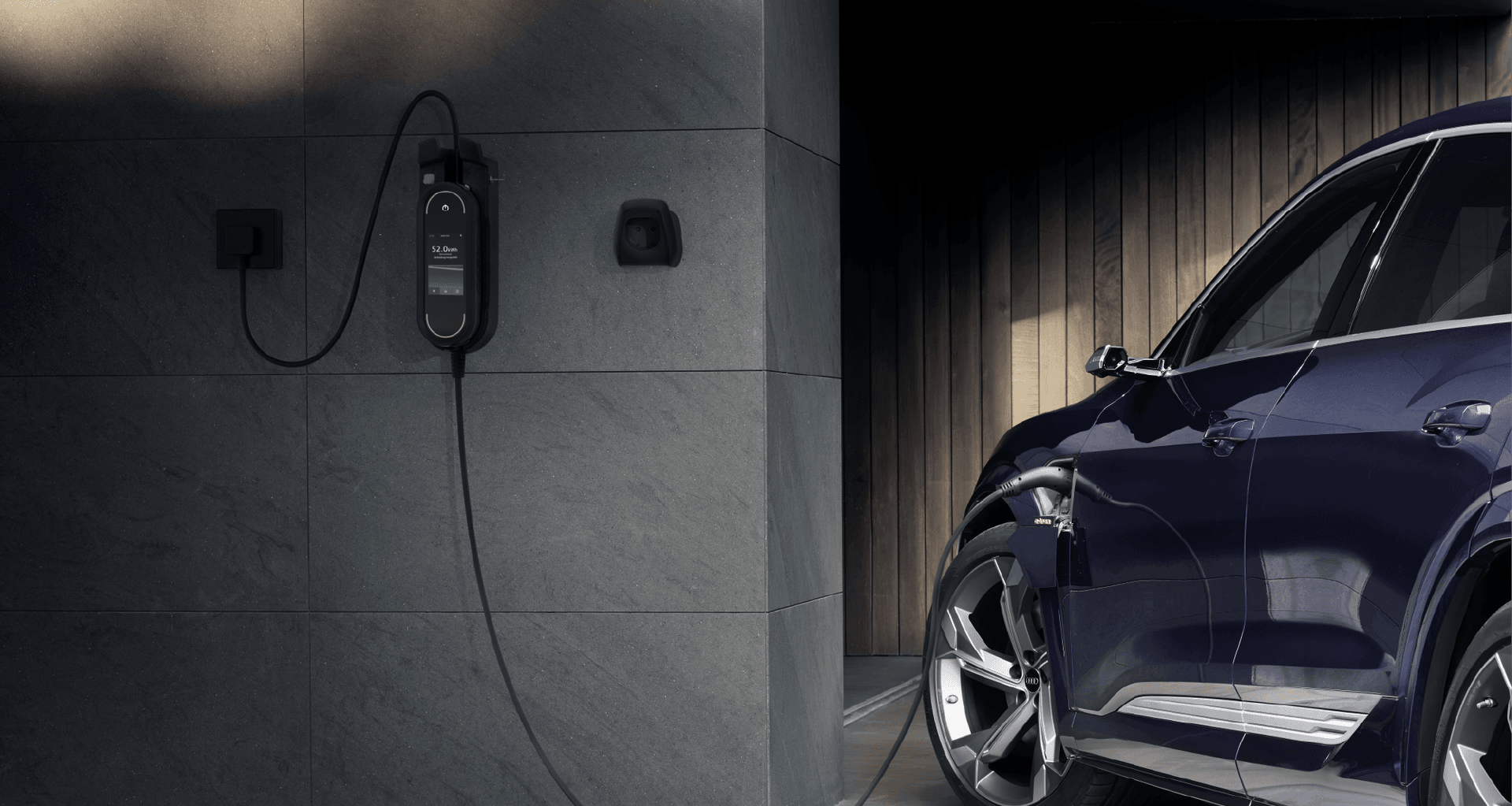Fuel up at home

Can you imagine leaving every morning with a full tank, yet never having to stop to fuel up? That’s the everyday experience of electric vehicle (EV) car owners with a home charging dock installed.
The Government’s EV adoption programme means we’re likely to see fewer and fewer non-electric new vehicles sold in the country, which means every new home should have a plan for an EV charger connection, says Audi GM Dean Sheed.
“Architects, designers and homeowners planning new builds should integrate EV home charging at the very outset of the design process, because portable chargers won’t suffice for the everyday EV user.”
New EVs typically come with a portable charging kit that can be plugged into any three-point plug; these portable charging devices will top a car up around 50-60km worth of charge overnight.
But with the average Aucklander driving 38km per day, this device is really only a temporary solution. It’s installing a home charging wallbox that’s the game-changer for EV owners.
How do you know if your home can take a home charger?
On average New Zealand homes are supplied with around 60 amps per household. A typical oven will take 16 amps, as will the average spa pool.
For a home charging wallbox, an electrician will typically install a 16 or 32 amp outlet. For new builds it’s far easier to integrate the division of amps across the home at the outset, but for existing homes, you have to consider the power current of the outlets you already have in place, says Dean.
“The home installation process that Audi pioneered has a registered electrician check your house, check the consumables you’ve got and then recommend an approach for you so you don't take any amounts above the maximum that’s coming into your home.”
The electrician will also assess the quality and durability of the electrical system, and suggest any upgrades or changes that need to be made to it, so that you can add the new outlet safely.
“It’s trying to find a solution that allows the maximum amount of currency for the charging, while you still achieve what the household wants to achieve.”
The cost of installation
If your home doesn’t need any electrical upgrades, installing a charging dock is straight forward. Audi has a system set up nationally with Vector and their subsidiary HRV, for qualified electricians to undertake home assessments and installations.
The cost of the installation of any new Audi from the e-tron range is subsidised by Audi up to $1,750, which covers the cost of installing a 32 amp plug in most homes.
The future of homes: home energy management systems
Home energy management systems have been used in Europe for years to manage the use of different appliances throughout the day and night, so that different consumables are active at different times and power usage is maximised and cost minimised.
It’s essentially a brain or computer that manages the energy flow in your home, so it will turn things down or up and ensure priority is given to certain consumables.
The impact of home charging balanced against the energy consumption of the home is becoming a standard consideration of designing or renovating a home and home energy management systems are integral to this.
“With EV charging you could set up your home energy management system to only charge your car between the hours of 10pm at night and 6am in the morning. One of the reasons is that most of the consumables in your home are off at that particular point so you’ve got maximum availability of power, and quite frankly it’s the cheapest— you’ve got off-peak costing,” says Dean.
It enables architects, designers and homeowners to make the right choice for their home and vehicle.
Along with Audi’s Electric Hub, which provides all the information anyone needs to know about integrating EV home charging, Dean says the calculator outlines a plan for those looking to go electric.
“EVs are the future of cars in New Zealand, so every new home should have a plan for an EV charging connection.”
